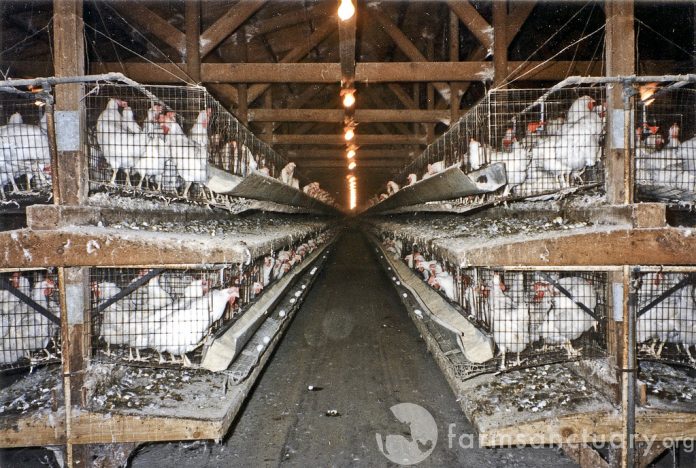An important resolution was adopted by the European Parliament in Strasbourg on February 14. It concerned the transport of live animals.
In fact, although an EU law on protecting transported animals already exists since 2005, it was widely accepted that it wasn’t properly applied.
The reasons seems to be the European Commission inaction as well as local interests that obstruct the application of the law in the member states.
In any case, the new resolution should point the next European Commission in a new direction on this issue.
The fact that it was adopted by 411 votes in favour to 43 against (110 abstentions) marks the will of the current European Parliament to send a clear message.
It will be important that candidates together with their national and party agendas are also engaged in matters related to animal welfare
However, the resolution is about the transport of living animals while many other topics concerning animal welfare must be under debate and eventually transformed in resolutions.
But the European Parliament and the European Commission have a limited time of action. The EC will be changed by the end of the year while the European Parliament next June.
It is important that a new pro-animal rights majority will be elected in the next EP, in a way MEPs can have the power to press European Commission to act.
It is for that, the initiative of the NGO Eurogroup for Animals to open a campaign in order to engage the candidates that they will deal with animal welfare and animal right in the next EP is of a great importance.
European Commission should act
Voting the resolution last week, MEPs asked the European Commission to impose penalties on member states failing to apply EU rules correctly. That means it was a hard opposition to the application of the 2005 law by the single member states.
Understandable since in many environments narrowly local interests come first independently of the effects on public health.
Animal testing is one of the cruellest treatment humans reserve for animals. The phasing out of animal testing should be an appropriate demand of a civilised society.
“Better inspections and heavier sanctions for violations of animal transport standards are urgently needed. It is of great importance that animal welfare during transport is dealt with in practice and not just on paper,” said rapporteur Jørn Dohrmann (ECR).
Maria Noichl shadow rapporteur for the S&D Group, underlined that “animal welfare must stay on the political agenda, to inform a new, sustainable agricultural policy as well as any revision of the Animal Transport Regulation”.
In the same line MEP Anja Hazekamp of the Dutch Partij voor de Dieren, (GUE/NGL) highlighted that the fight is far from over until the Commission takes action.
Since the resolution was vote by a cross Group majority, it is hoped that the new EP will follow the same way.
After all, according to the Eurobarometer the large majority of EU citizens consider important the welfare of the farm animals.
The candidates for the EP should clarify their intentions
While pressing the European Commission to apply the rules in what concerns the transport of live animals, the new MEPs should debate and vote for a wide range of topics that concern animal welfare.
The furs trade is useless and only intends to satisfy human vanity. The gradual ban of furs trade is also a question of culture and ethos
Animal testing is one of the cruellest treatment humans reserve for animals. The phasing out of animal testing should be an appropriate demand of a civilised society.
The furs trade is useless and only intends to satisfy human vanity. Several reports over the past couple of years suggest that the conditions in the animal farms are cruel. To make the situation worst is the hypocrisy of some states where there is a ban of fur farms but not a ban in furs import and trade. The gradual ban of furs trade is also a question of culture and ethos.
While the ban of trophies and the trade of products related to protected animals is in a good way, the trade in wildlife is not fully banned. Especially in what concerns the illegal hunting of birds, Malta, Italy, Cyprus, Spain, France, Greece and Croatia do not protect efficiently wild birds. In Malta, Cyprus, Italy or France there is a slaughter of song birds every year part of which enrich the coffers of organised crime.
Fish welfare, the rights of animals used in tourism and the inclusion of animal welfare standards in international trade agreements should also be subjects of deep debate and action.
Last week, the Eurogroup for Animals opened a campaign aimed to ensure that strong support for animal welfare among newly elected European parliamentarians translates into a political priority for the next European Commission.
In practice, this is asking every European Parliamentary candidate to sign a pledge in support of animal-friendly initiatives during the next legislative term.
“If no one represents animals’ interests in the European Parliament, no law will take them into account,” said Finnish MEP Sirpa Pietikainen (EPP) when asked by Eurogroup for Animals to comment the campaign’s launch.
It will be important that candidates together with their national and party agendas are also engaged in matters related to animal welfare.
As all scientific reports alarmingly pointed out, animal welfare – including domestic animals, livestock as well as any kind of wild life (animals, birds, fishes and insects), is narrowly interconnected with our future.

